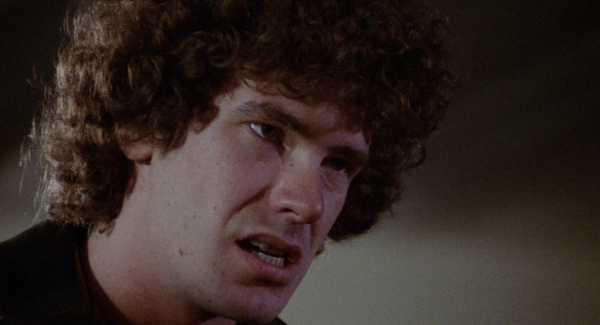How screenwriters can use psychology to develop characters and scripts more effectively
by Carole Dean
I had a truly fascinating interview on The Art of Film Funding Podcast with Dr. William Indick. He is the author of the book Psychology for Screenwriters: Building Conflict in Your Script. (Published by Michael Wiese Productions, the same publisher for my book, The Art of Film Funding).

William earned his Bachelor’s Degree in Psychology in 1993 and his Ph.D in Developmental Psychology in 2001 from Cornell University. An active screenwriter, author, screenwriting consultant, William is also an Associate Professor of Psychology at William Patterson University where he teaches courses in media psychology, psychology, and film.
Writing psychologically complex characters requires a deep understanding of human behavior.
In his book, Dr. Indick uses his years of study and experience to convey this to the readers in a way that doesn’t require them to have a Ph.D in Psychology. He does this by sharing insights from brilliant psychological theorists, such as Freud, Young, and Adler, and teaches you how to apply these principles to screenwriting and character development. The book can be a wonderful guide and inspiration for writers at any phase of development of their script.
“The psychological theories that I apply to film,” Dr. Indic explained during our discussion, “are basically just explorations of human behavior. Each model tries to understand what makes us tick, and by understanding that, we can predict what someone may or may not do in a given situation.
“We’re trying to figure out what are these characters will do once we put them in the specific scenario that we’re developing. Their actions tell us more about their character than anything they could say about themselves, or any type of voiceover narration can tell us about the characters. “When we’re looking at the screen, we, the audience, are looking at behavior and analyzing behavior like psychologists.”
“The best tool we could have is the models that psychologists created for understanding behavior.”
I think this is such a valuable insight from Dr. Indick. There is already a wealth of information from expert psychologists that writers can draw from to make the challenging task of character development easier. This book does a terrific job making these theories and principles easily accessible to the writer, who may not have a background in psychology at all.
I asked Dr. Indick to speak on how these psychological models applied specifically to development.
“Using these models,” he responded, “that do predict human behavior based on an understanding of what this person’s personality…can generate new ideas.
“If my character is having, say, an identity crisis. Well, what did Erickson have to say about identity crisis? And what would Erickson predict? Meaning what would this person do to express their identity conflict? You might find what people they seek to help them? What new behaviors or new ways of dealing with conflict will this person adopt?
“Once you understand the model and how it works,” he continued, “there are different ways that you can express conflict in this character through their behavior or through their dialogue. And that frees you up from having to explain what’s going on in the character’s head with giving voiceover narration that literally tells the viewer what the character is thinking.”
That is something that I know Robert McKee would appreciate. He wants information through action and short dialogue.
Creating dark and psychologically complex characters from shows such as The Sopranos and The Wire.
I find a character like Tony Soprano fascinating. He plays a killer who is a terrible person, yet the audience becomes engaged with him and connects to him. We want to understand what makes him tick. I found that the more I watched and tried to understand how he would handle murder and mayhem one minute and then deal with his family life, the more engaged I became.
Dr. Indick explained that we are “looking into his character, seeing how evil he is, yet also wondering, why am I so interested in him and why am I sort of connecting with him? So, we’re questioning the character, which makes us question ourselves, but then at the same time, the character is questioning himself and his own morality and his ethics and his basic identity and character.”
He believes that the reason we watch anything, “whether it’s a show or a movie, we’re trying to learn something about ourselves. We do that by watching other people and we can learn some extreme things about ourselves by watching other people do extreme things.
“So that’s the benefit of film as often it is a virtual reenactment of life that we could view and learn from, but not actually have to go through mistakes and do some horrible things.”
That certain air of mystery.
He talked about the fact that developing psychologically complex, and therefore more engaging characters, requires maintaining a certain air of mystery about them. It’s not as interesting if the character is predictable or if their motivations and actions are surface level. The most interesting characters, in a way, are puzzles for the viewer to solve.
“When a character does something that is inexplicable and is fascinating for the viewer,” Dr. Indick told me, “ then what the writer needs to do is keep it explicable by explaining exactly what’s going on. But keep the mystery there and reveal little by little through action and dialogue what’s going on and why they’re doing this inexplicable thing.
“We all love mystery stories because we like to figure out the mystery for ourselves. When you give away the mystery in voiceover narration in the first five minutes, then you will lose the audience. The audience has no mystery to solve and therefore they’re not interested any longer.
“Mystery keeps us tied into the plot and tied into the character. Confusion pushes us away, but mystery leads us in. The screenwriter has to master treading that line between confusion and mystery. The plot must never be confusing, but the characters should always be somewhat mysterious.”
You can find Dr. Indick’s book at mwp.com/product/psychology-screenwriters-building-conflict-script-2nd-ed. It’s an invaluable resource.
Carole Dean is president and founder of From the Heart Productions; a 501(c)3 non- profit that offers the Roy W. Dean Film Grants and fiscal sponsorship for independent filmmakers.
profit that offers the Roy W. Dean Film Grants and fiscal sponsorship for independent filmmakers.
She is creator and instructor of Learn Producing: The Ultimate Course for Indie Film Production. 26 classes which will teach indie filmmakers how to produce their films.
She hosts the weekly podcast, The Art of Film Funding, interviewing those involved in all aspects of indie film production. She is also the author of The Art of Film Funding, 2nd Edition: Alternative Financing Concepts. See IMDB for producing credits

